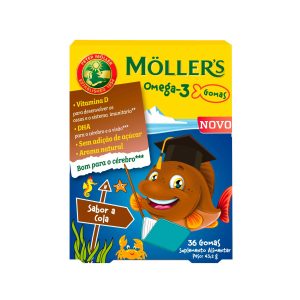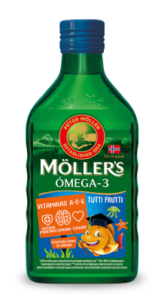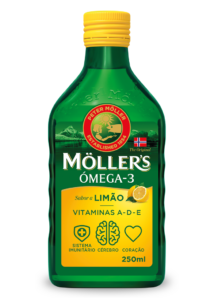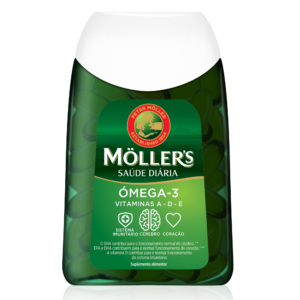A new chapter begins when your child starts nursery. A chapter of coughs, colds and flu! Here are some tips to keep the kids’ – and the rest of the family’s – immune systems healthy.
Home » Keeping children’s immune systems healthy

Read more articles about immunity and the immune system here
The first year of nursery is a year that you can expect your child to be sick – a lot. Nursery is a breeding ground for infections, and your family will most likely be infected too. One by one. But it gets better. Because whenever you get an infectious disease, the immune system produces more antibodies and gets stronger and better at combatting diseases.
For newborn babies, it’s a different story. As Professor Arne Spurkland, an expert on the immune system, explains:
“Newborn babies have not produced any antibodies themselves. Before they were born, they got lgG antibodies and, through breastfeeding, they get the lgA antibodies – both from their mother. This protects children for the first six months of life, until they start to make their own antibodies”.
After six months, babies and children rely on their bodies’ natural immune response to fight infection. When your body has an immune response, some of the cells that were stimulated by this process will remain and produce antibodies. This means the next time your body encounters the same microbe, it already has antibodies and will start to produce more of them quickly, to stop the infection more effectively. This is also how many vaccines work and the reason why a lot of infections only strike us once in a lifetime.
So children need to be sick sometimes to stay healthy in the future. But we agree it would be nice if your child could avoid being sick all the time. So what can you do to help the immune system?
1.Vitamin D
Several studies show that vitamin D helps the immune system maintain its normal function. The NHS recommends giving vitamin D supplements to all babies from six months of age. This way you ensure that their need for vitamin D is covered.
2.Make washing hands fun
Making sure your children wash their hands with soap and water for the recommended 20 seconds is important to help prevent the spread of germs. A good trick is to get them to sing a song while they wash their hands. When they’ve finished they’ll know they’ve washed their hands for 20 seconds. Your children can use this method anywhere – at school, at a friend’s house or in public toilets.
3.Five a day
The NHS recommends eating five servings of fruit and vegetables every day because this is an easy way to increase your intake of vitamins. The A, C, D, and several B vitamins help the immune system to function. And the more varied the fruit and vegetables you eat, the better.
4.A little dirt is good
Remember that every time we get infected the immune system produces more antibodies and gets better at combatting disease. So kids should roll around in the mud, put dirty fingers into their mouths and have contact with animals as early as possible.
What is good health?
Do you have a good lifestyle?
Lifestyle simply means the way in which you live. Health and lifestyle go hand in hand. You might feel you have a good lifestyle if you are physically active, eat healthily and generally experience a sense of wellbeing. Conversely, if you want good health you should also have a good lifestyle.
Physical activity is the major contributor to a good lifestyle, but diet, drugs, stress, sleep and social conditions are also play an important role. Being able to use the body properly to avoid injury also affects lifestyle. Physical activity can also prevent depression and help you to recover more quickly from mental illness, both of which obviously affect your lifestyle.
Diet can be a difficult topic for many. Perhaps you eat too much or too little or maybe you find it hard to know what foods to combine to have a balanced diet. It’s also important to eat food that contains important vitamins, minerals and dietary fibre, omega-3 and antioxidants. On top of all this, you also need to get enough energy, protein and the correct fatty acids. The requirement for these nutrients changes throughout your life. When you are older you also have different requirements than children and younger adults. Women also have different requirements than men. Pregnant and breastfeeding mothers also have special requirements.
When you get older, you lose muscle mass and your body requires less energy and therefore less food. You may lead a less active life than you did before, which is why you require less food. However, your need for minerals, vitamins and other nutrients remains the same. Of course, there are plenty of healthy and active older people, but when you reach 70 to 80 years of age, it’s easier to become ill, especially during flu season.
Some steps you can take to improve your lifestyle and health are to:
- eat a healthy and varied diet
- stay active
- watch your weight
- avoid too much alcohol and don’t smoke
- get enough sleep
- think positive
- practise good hygiene
What is good quality of life?
The World Health Organisation (WHO) defines quality of life as a state where the individual can realise their potential, cope with normal stressful situations, work in a rewarding and positive way, and be able to contribute to others and society.
Quality of life is a wide and somewhat diffuse concept that includes joy in, and a desire for, life. These are values that are rather felt than measured, which in turn are based on personal environment and choices. Quality of life doesn’t necessarily depend on being healthy or sick. It’s the moments between worries, sorrows, problems and ailments that matter. For example, if you have a chronic illness, a feeling of mastery can be important when talking about quality of life.
To sum up, quality of life is a combination of health, lifestyle, networks and social support. It’s about experiencing joy, meaning in life, satisfaction, security and a sense of belonging, as well as being able to use your strengths. It’s also about feeling interest in life, coping with everyday situations and a being committed to something or someone. If you have good quality of life, you will be able to cope better with the inevitable stressful situations in life.
Learn more
Programa de exercícios para idosos
Healthy Aging Healthy Bones
Dieta saudável durante a gravidez
Brain Healthy Aging
Boa saúde, estilo de vida e qualidade de vida – O que tudo isso significa?
Cod Liver Oil Healthy Aging








